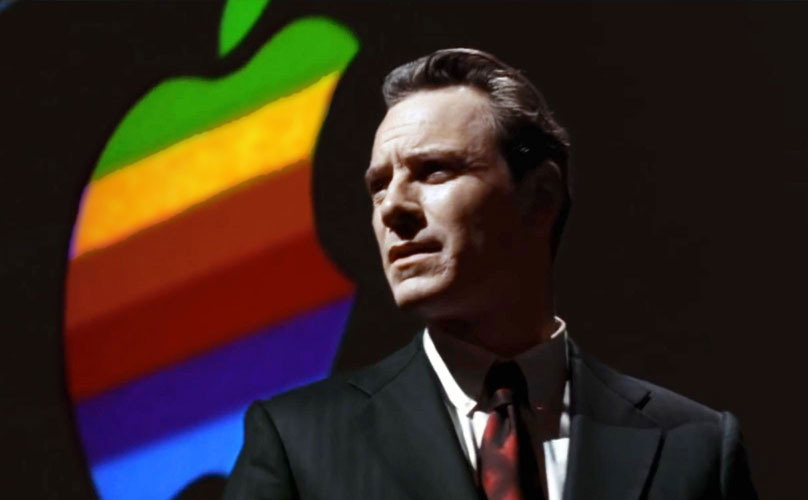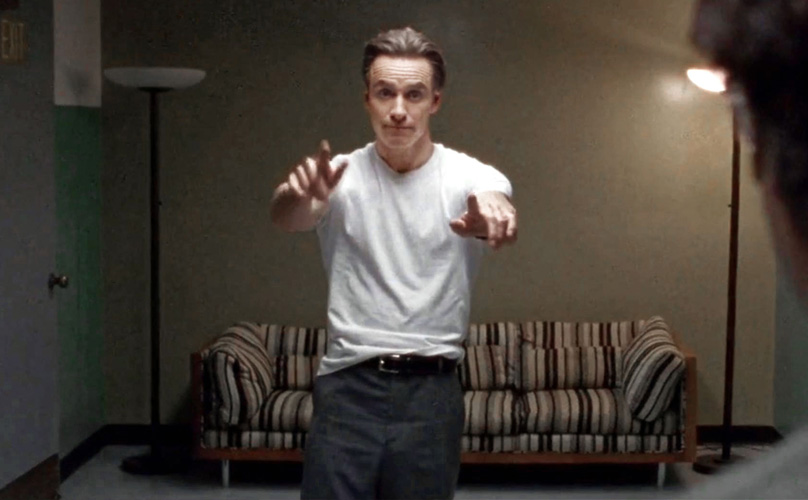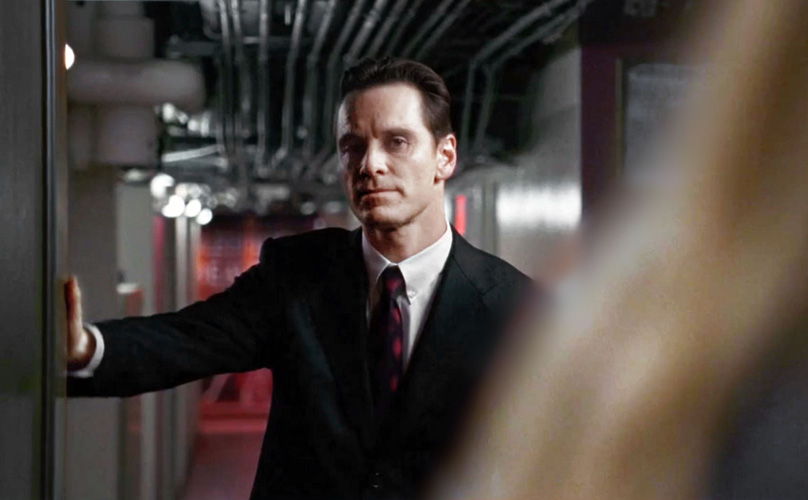
|

|

|

|

|

|

|

|

|

|

|

|


Film from director Danny Boyle and screenwriter Aaron Sorkin is a "talk opera" that doesn't sugar-coat the Apple founder's life.
With "Steve Jobs," screenwriter Aaron Sorkin adds another chapter to his hopefully ongoing American tech saga. First, in the Sorkin-written, David Fincher-directed "The Social Network," Facebook founder Mark Zuckerberg went from quirky Harvard nerd to friendless billionaire, changing the way people connected for better and worse.
Now, in Sorkin's new film, directed by Danny Boyle and premiering at the Telluride Film Festival on Saturday, Steve Jobs goes from Apple inventor to Apple reject to Apple savior.
Those of us who grip our iPhones, type on our MacBooks, listen to our iTunes and tap on our iPads know the story of Apple. We know these beautiful items were credited after Jobs was brought back to save the company he'd co-founded from bankruptcy. We also know the withered cancer victim who fought back death until it finally carried him under.
This film isn't about that story. It isn't about nature casually discarding even the most valued among us. As Bob Marley was quoted as saying, "All the money in the world can't buy you a minute more of life."
Sorkin's "Steve Jobs" is about how we measure success and failure. Jobs could not really achieve greatness without recognizing the most important thing in his life: his biological daughter Lisa Brennan. His success could not be measured by the pretty toys alone. His success must come from his willingness to connect with his own flesh and blood.
In the film, much is made of Jobs' own adoption as a main reason he has so much trouble with his own daughter. This damaged relationship is played out alongside Jobs' career highs and lows. None of his successes will matter in the end if he can't do the right thing, which means more than just writing a check. That is probably the most surprising thing of all — how Boyle and Sorkin launched an excavation to find Steve Jobs‘ heart.
Boyle's version of Steve Jobs looks very different from what original director David Fincher's would have looked like. It's impossible to say whether Boyle's is better than Fincher's would have been. Boyle gives the film over to the writing and to the film's lead performance, a stunning knockout by Michael Fassbender as Jobs. Boyle gives us breathtaking shots of Jobs in various stages of his professional life. He filmed the whole thing in three different theaters in San Francisco, and much of the action is confined to those spaces.
Winslet has one of the film's best scenes where she can't watch this man mistreat his daughter for one more minute. Either fix it, she says, or I'll go work... "anywhere I want."

Fassbender spits out Sorkin's dialogue like an ice cube maker — each withering insult sticking its landing. Jobs suffered no fools. This is not a story that sugar coats his past. He is, in many ways, a monster who feeds on ego and builds machines that do not cooperate with other machines but are closed systems onto themselves.
Fassbender's Jobs is focused on one thing: making his work a success. What friendships he has are mostly about his work. He isn't freed from the theater to go live his life, not ever. What life? Jobs has nothing but Apple. That is, until he eventually figures out that there is one thing he helped bring into the world. He has to change to access that primal human relationship.
"Steve Jobs" has the look and feel of a three act play with a stage, a backstage, an adoring crowd and lots and lots and lots and LOTS of dialogue. Sorkin and Boyle have found a way to tell this familiar story as a kind of talk opera. Dramatic speech and monologues take up so much room there isn't much left for anything else.
It's a high wire act that might leave some feeling left behind. Somehow, though, Boyle pulls it off not by backing off the speechifying but by leaning into it and allowing it to sing.
Boyle brings out memorable turns by the supporting actors, among them Seth Rogen as Apple co-founder Steve Wozniak and Jeff Daniels as company CEO John Sculley. As is almost always the case with Sorkin’s work, they are all speaking the same language, drawn from the same rhythm and vocabulary.
To some this is Sorkin overkill but the same could be said for the best of them: David Mamet, Edward Albee, Paddy Chayefsky and even William Shakespeare. Sorkin is not trying to do anything but write in his own style, thus this film and its exceptional dialogue leaves its mark as profoundly as Jobs himself left his.
Boyle is not working with his usual team on "Steve Jobs," with a suspenseful score by Daniel Pemberton and cinematography by Alwin H. Kuchler. The British director is trying something new here, making a film built almost entirely on dialogue. This is a film made up of what Boyle calls "gestures" to the real people involved. They aren't trying to make a biopic here but rather a kind of symbolic, ongoing conflict between the icon and the man.

There are playful moments in the film, and emotional highs that catch you off guard. Boyle’s enthusiasm and zest for life, combined with Sorkin's energy and verbal swordplay, make "Steve Jobs" breathtaking and relentless at the same time.
In America, we want our heroes to shimmer. We want them to emerge as gods, not monsters. We want them to tell their story of success, celebrating the tenets of the American dream. We need that dream to come true.
A film like this one is a reminder that you can't pick and choose the builders of this country or that dream. They are sometimes broken people, whose humanity is buried underneath layers of ambition. When the spark of genius does emerge, however, one can do nothing but stand back and applaud with admiration a man who could do that much with his imagination.
